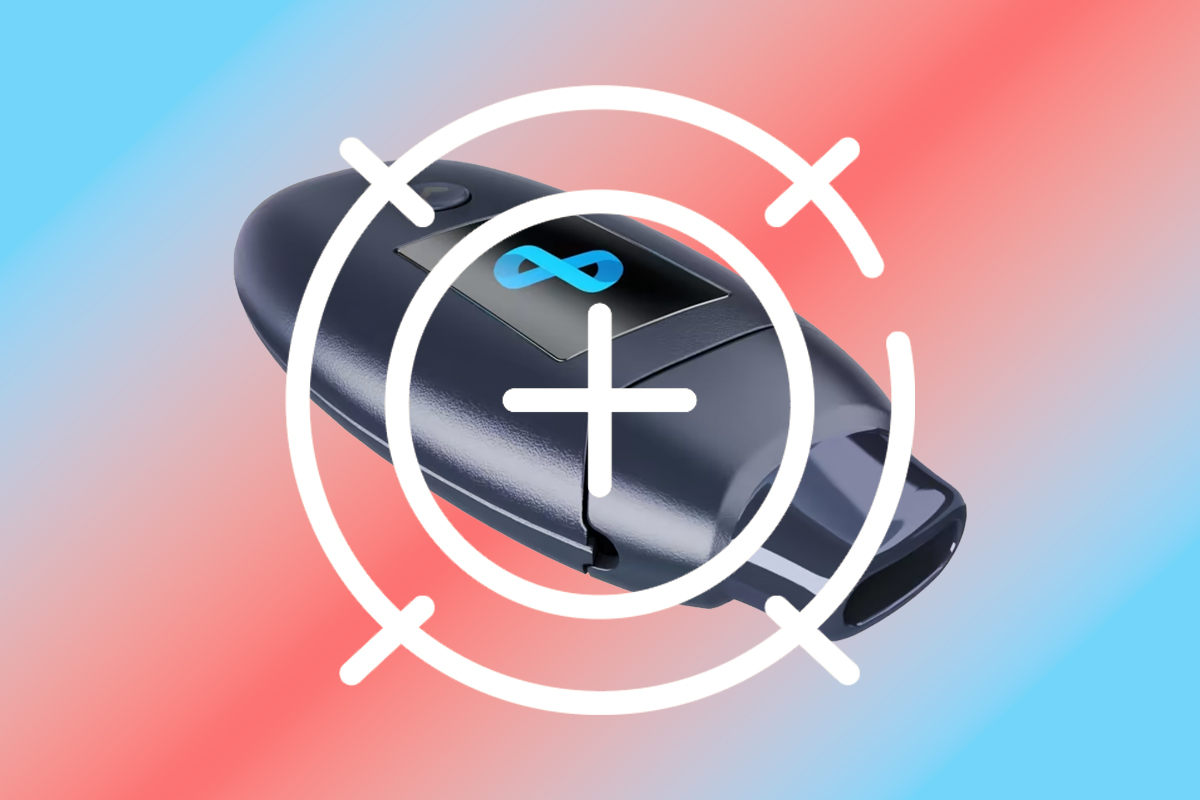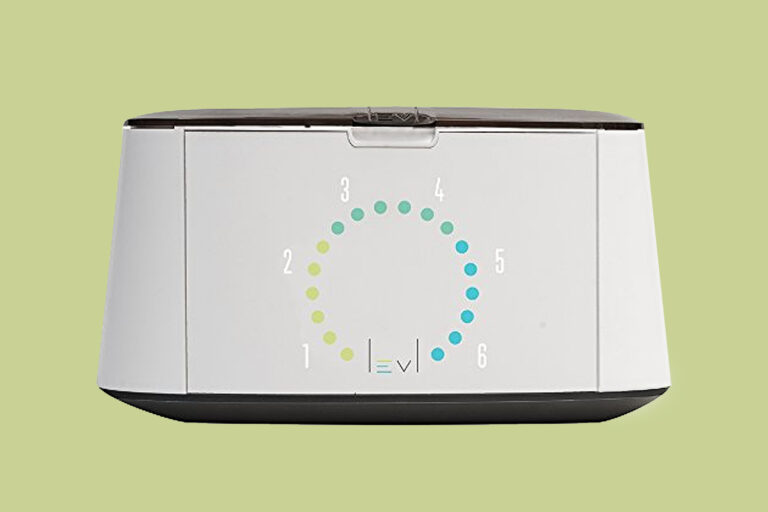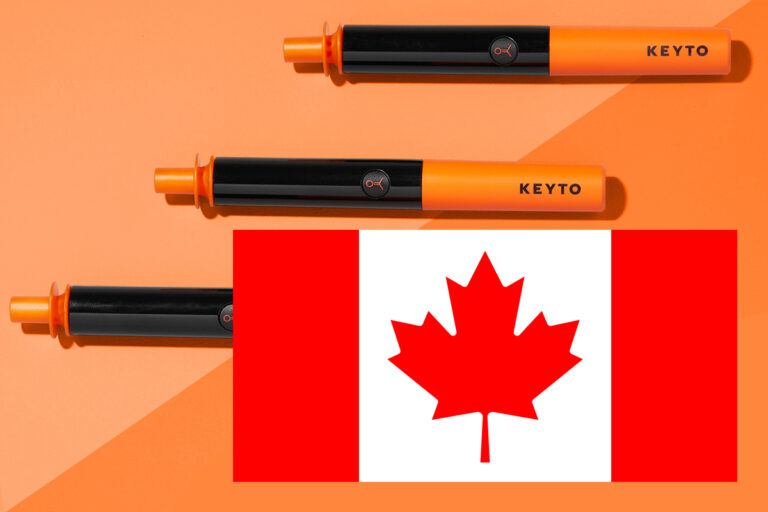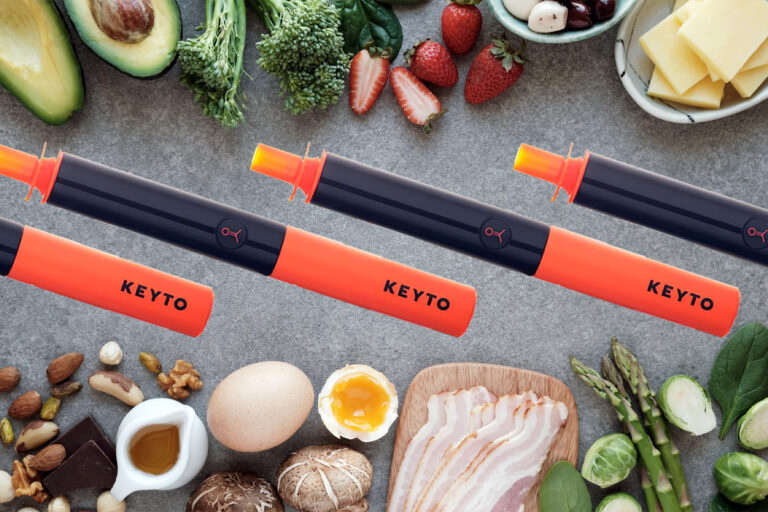What is Ketone Breath Meter Calibration? (2024)

Regular ketone breath meter calibration might sound like a daunting chore, but it is the key to accurate and consistent readings.
Here’s everything you need to know about acetone monitor sensor calibration.
- What is ketone breath meter calibration?
- Do all ketone breath meters need calibration?
- How to calibrate ketone breath meter?
- How much does ketone breath meter calibration cost?
- How long does the calibration process typically take?
- How do I know if ketone breath meter needs calibration?
- How often should I calibrate ketone breath meter?
- What happens if I skip or delay the calibration process?
- What is Ketone Breath Meter Sensor Replacement?
What is Ketone Breath Meter Calibration?
Ketone breath meter calibration is a process that ensures the device provides accurate and precise results consistently.
The calibration process varies between brands, but most of them will include setting a reference value and making readings consistent.
Breath monitors use customized sensitive sensors designed to detect low concentrations of acetone (parts per million).
Depending on the frequency of use, all breath ketone meters will eventually require recalibration.
This is because of exogenous factors and interfering substances in the breath will affect ketone breath meter accuracy.
Do All Ketone Breath Meters Need Calibration?
Yes, all ketone breath meters need some form of calibration, but the level and frequency depend on the model.
Some meters require the device to be sent in for calibration, while cheaper ones do self-calibration before each measurement.
The calibration is essential because sensors can be sensitive to environmental factors, which can lead to sensor failure.
When choosing a ketone breath meter, always prefer a brand that is upfront and clear about its calibration process and requirements.
This suggests that the brand makes sure you get the most accurate results consistently.
How to Calibrate a Ketone Breath Meter?
The process of calibrating a ketone breath meter varies depending on the brand and type of the monitor.
For most high-end models, like Biosense, the calibration is done by professionals. This means you need to send your device back to the manufacturer. They’ll recalibrate it for you and send it back.
The technicians will clean or replace the sensors if needed and then update the reference values. This ensures the readings are accurate and consistent.
| Brand | Frequency | Service | Time | Price |
| Ketonix | After long pauses | DIY | 10 minutes | Free |
| Biosense | Every 6 months | Send-in | 6-10 days | $74.99 |
| Ketoscan Mini | 320 Test cycles | Send-in | – | $30.00 |
Then, there are other ketone breath meters like Ketonix that require manual calibration. This involves using specific software and following the manufacturer’s guidelines. It’s a straightforward process, but you need to make sure you follow the instructions closely.
There are some newer models, such as the Ketoscan Smart, that make calibration even easier. Instead of recalibrating the device, you simply replace the old sensor with a new precalibrated one. This minimizes the time and effort required to maintain accurate readings.
Lastly, there are cheaper acetone breath meters that do automatic calibration before every measurement. This is a convenient feature but might not offer the most accurate results in the long-term.
How Much Does Ketone Breath Meter Calibration Cost?
The cost of calibrating a ketone breath meter varies on the brand and whether your device needs a professional calibration process. The average cost of most send-in calibration services is between $30 to $75.
But this price range is per calibration. For example, Biosense suggests recalibrating your device once every 6 months, which means it will cost about $150 a year on top of the device price.
Yet, if you want medical-grade accuracy, then you need to calibrate your breath acetone monitor consistently.
Most cheap acetone monitors don’t come with any calibration guidance and do a basic self-service calibration before each measurement.
During time, their accuracy fades because of exogenous factors, and should be recalibrated by a professional. You can expect to pay around $30 to $100 for a recalibration on a generic breathalyzer service provider.
How Long Does the Calibration Process Typically Take?
It takes about 1-2 weeks for the calibration process to complete. The specific duration depends on the brand and model of the device.
This does not include the time for shipping the equipment back and forth. However, if there are additional issues, like a sensor needing to be replaced, the process may take even longer.
So, it’s always a good idea to plan ahead and allow for extra time when scheduling a calibration. This way, you’re not left without your crucial equipment for longer than expected.
How do I Know if a Ketone Breath Meter Needs Calibration?
A ketone breath meter needs calibration once it begins to provide inconsistent readings. This means if you’re taking multiple tests and the results vary a lot, your meter might not be accurate anymore.
Another sign that the acetone monitor needs recalibration is if, depending on the brand, it provides either 0 or extremely high readings consistently.
Lastly, a tell-tale sign is if your device starts sending out calibration alerts. These alerts are designed to let you know if something’s off with your meter.
Also, the age of your device can affect its accuracy. Over time, the components inside the meter can wear out, making calibration necessary to ensure it’s still giving you reliable readings.
How Frequently Should I Calibrate a Ketone Breath Meter?
You should calibrate a ketone breath meter about once or twice per year. The frequency of calibrating a ketone breath meter depends a lot on the brand and model.
If you’re using it daily, you might have to calibrate it once or twice per year.
For instance, the Biosense meter needs calibration every six months, while the Ketoscan meter requires it after every 320 test cycles.
So, it’s important to check the specific instructions for your device to ensure accurate readings.
What Happens if I Skip or Delay the Calibration Process?
The main downside of skipping or delaying the calibration process is that the device will provide inaccurate measurements. This may lead to nutritional mistakes and misunderstandings for anyone following the ketogenic diet.
In most cases, the device will provide inconsistent measurements, which are not very useful for anyone trying to measure the state of ketosis.
In a worst-case scenario, your device could even stop working completely. This may happen because the sensor has been damaged or overly affected by outside factors like temperature.
What is Ketone Breath Meter Sensor Replacement?
A ketone breath meter sensor replacement is a process where the old or worn-out sensor is replaced with a new one. Sensor replacement is different from sensor calibration.
Ketone breath meter calibration is a process where the sensor is adjusted to default measurement values, while sensor replacement is getting a whole new sensor.
Sensors can wear out over time, especially if you use them a lot or keep them in hot places.
That’s why it’s important to check the manufacturer’s guidelines on when to get a new one so you’re always getting the most accurate readings.

Alex is the founder of Bodyketosis, an author, low-carb enthusiast, and a recovering chubby guy who reclaimed his health using the ketogenic lifestyle. The need for the keto life began after his aunt and cousin were diagnosed with type 2 diabetes and he was next in line. Through personal experience and extensive scientific research, Alex offers insightful tips for everything keto.



![Julian Bakery “InstaKetones” Review 2024 [It Has ONE Problem]](https://bodyketosis.com/wp-content/uploads/2018/06/instaketones-768x457.jpg)



